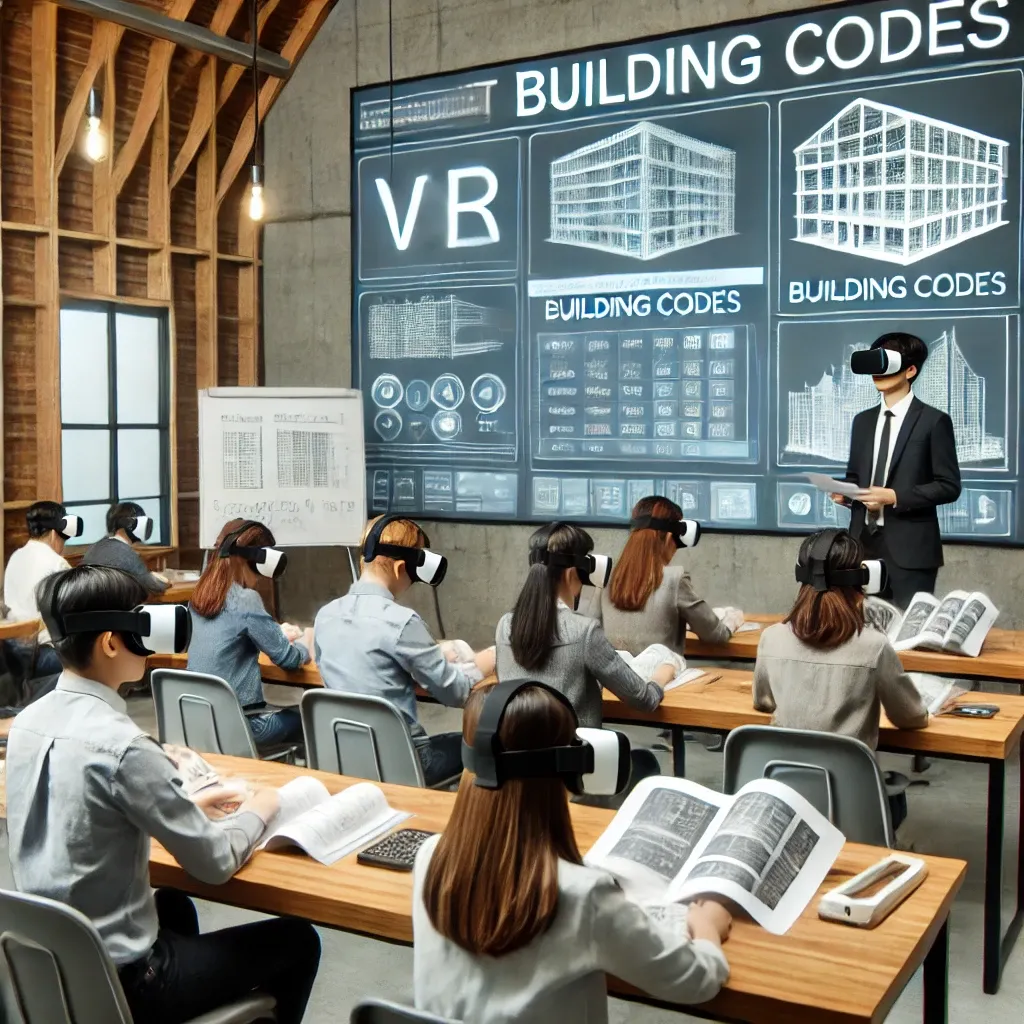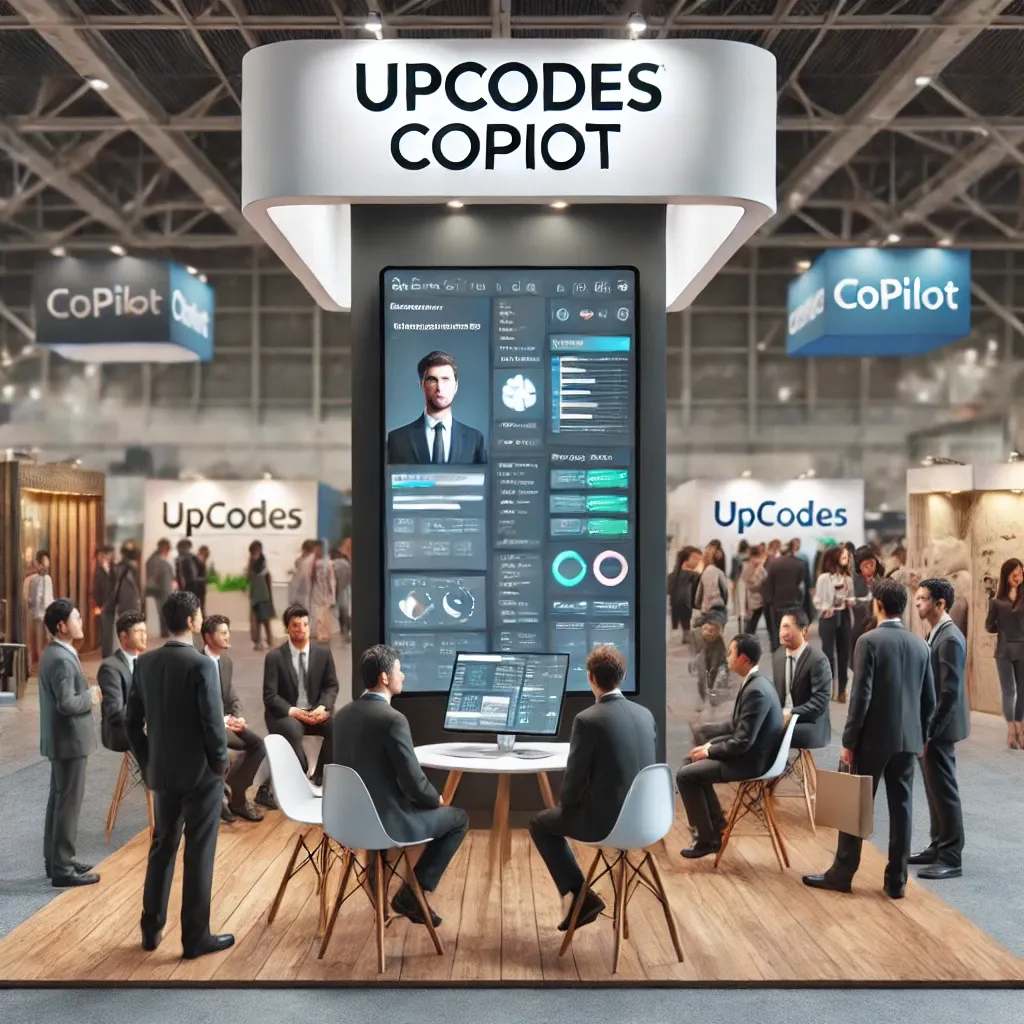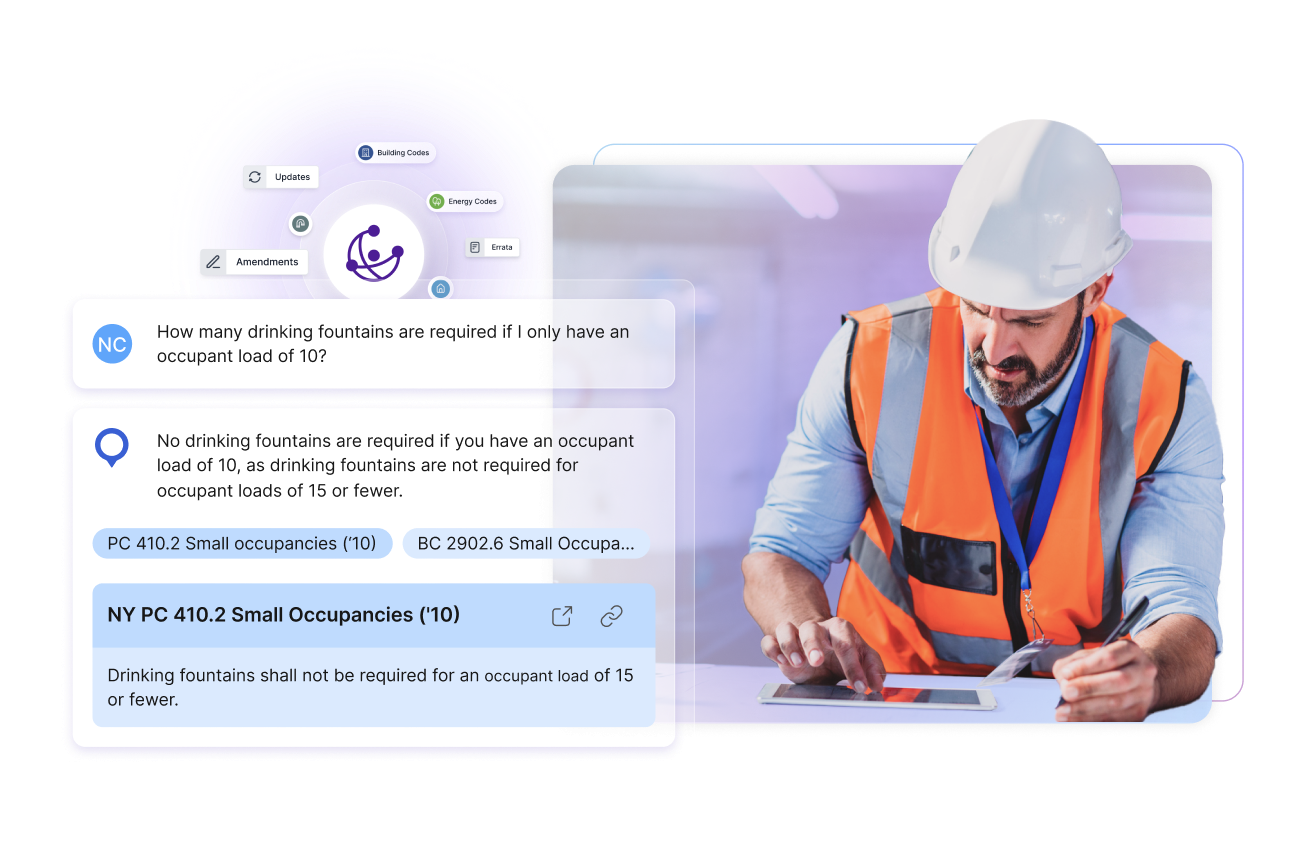Unlocking Building Code Compliance with UpCodes Copilot
In the realm of architecture, engineering, and construction (AEC), adherence to building codes is paramount. These regulations ensure the safety and integrity of structures, but they can also be a labyrinthine challenge to navigate. Enter UpCodes, a startup founded in 2016 with a mission to revolutionize how professionals in the AEC industry approach code compliance. With their cutting-edge tool, UpCodes Copilot, they are streamlining the code research process, providing tailored solutions to complex questions, and simplifying the compliance landscape. In this article, we will explore the world of UpCodes, diving into its history, challenges faced by the industry, and how UpCodes Copilot is reshaping the AEC landscape.

Who Are the Innovators Behind UpCodes?
Behind every successful startup is a team of visionaries, and UpCodes is no exception. Co-founded by Garrett Reynolds and Scott Reynolds, this dynamic duo brings a wealth of experience to the table. Garrett, with eight years of prior experience in the AEC tech space at PlanGrid, and now leading UpCodes, possesses a deep understanding of the industry's nuances. Together with Scott, they've embarked on a journey to redefine the AEC landscape.
The Limitations of Existing AI Tools in Building Code Compliance
Artificial Intelligence (AI) has undeniably carved its path into numerous sectors, revolutionizing the way we work and interact with technology. However, when it comes to the intricate world of building codes, the current AI landscape often falls short of meeting the industry's unique demands. In this section, we'll delve into the limitations of generic AI chatbots and assistants, like ChatGPT or Google Bard, which struggle to provide the specialized support required for navigating building code complexities effectively.
Where Do Generic AI Tools Encounter Challenges?
The Challenge of Jurisdictional Specificity
One of the fundamental issues with generic AI tools is their lack of jurisdictional specificity. Building codes vary not only between countries but also between states, cities, and even local municipalities. These codes are ever-evolving, adapting to regional needs and safety standards. Consequently, relying on AI tools that operate from outdated code can put professionals at significant risk of non-compliance.
Imagine an architect designing a residential building in California, where earthquake-resistant construction is paramount. They need precise information on seismic building codes specific to their project location. If they turn to a generic AI chatbot, it may provide them with generic, outdated information that fails to address California's unique seismic code requirements.
The Struggle to Keep Pace with Code Changes
Building codes are not static documents; they undergo frequent revisions and updates to address new technologies, materials, and safety concerns. These changes can occur on both a national and local level, making it crucial for professionals to stay up-to-date with the latest regulations.
Generic AI tools often struggle to keep pace with these rapid code changes. Their reliance on static datasets means they may not have access to the most current information. As a result, professionals using such tools may inadvertently rely on outdated code provisions, leading to potential compliance issues and safety concerns.
UpCodes Copilot: Revolutionizing Code Compliance
Recognizing the shortcomings of generic AI tools in the context of building codes, UpCodes has taken a bold step forward by introducing Copilot. This innovative tool represents the future of code compliance, aiming to address the challenges faced by architects, engineers, and professionals involved in the AEC industry.
Copilot: More than an AI Assistant
UpCodes Copilot transcends the limitations of traditional AI assistants. It emerges as a true partner for architects, engineers, and all stakeholders engaged in the AEC sector. Copilot doesn't just provide generic responses; it offers tailored, context-aware answers and delivers the most pertinent regulations for project-specific inquiries. This level of precision is a game-changer for the industry.

Benefiting Diverse Roles in the AEC Industry
One of the most remarkable aspects of UpCodes Copilot is its broad applicability. It caters to a diverse array of professionals engaged in the code compliance lifecycle, ensuring that whether you are designing, constructing, or managing occupancy, Copilot becomes your indispensable research assistant.
For architects, Copilot streamlines the code research process, enabling them to focus more on the creative aspects of their projects. Engineers can rely on Copilot's expertise to calculate complex code requirements accurately. General contractors benefit from faster access to essential code information, reducing the risk of errors and project delays. Government officials and plan examiners gain an invaluable resource for conducting thorough code reviews.
In essence, UpCodes Copilot transforms how the AEC industry engages with building codes, making it a seamless and efficient experience for all involved parties.
The Future of Code Compliance: UpCodes Copilot Leads the Way
As the AEC industry continues to evolve, UpCodes Copilot stands at the forefront of technological innovation. It remains committed to ensuring that professionals have access to the most up-to-date and jurisdiction-specific code information. Copilot's ability to adapt to the dynamic nature of building codes positions it as a pivotal tool in the industry's quest for safer, more efficient, and more compliant construction practices.
In conclusion, UpCodes Copilot is not merely a tool; it is a beacon of hope for the AEC industry. By addressing the limitations of existing AI solutions and harnessing the power of innovation, Copilot is reshaping how professionals interact with and interpret building codes. With UpCodes Copilot, the future of code compliance looks brighter and more promising than ever, offering architects, engineers, and all stakeholders the support they need to create a safer and more sustainable built environment.
How Does UpCodes Copilot Work?
Copilot builds upon UpCodes' already powerful search capabilities, offering instant answers to code queries. Here's how it works:
Research Faster
Copilot goes beyond manual code gathering by instantly delivering relevant code sections from various codes and chapters.
Be More Efficient
It helps you catch sections you might have missed and improves overall compliance management.
Gain Insight
Copilot empowers you to navigate massive volumes of code effortlessly.
Practical Applications of UpCodes Copilot
Copilot is versatile and can assist in various aspects of code compliance:
- Ask a Code Question
Pose specific queries for a particular jurisdiction and adoption cycle, and Copilot will provide precise answers with references to the relevant code sections.
- Explain a Concept or Code Section
Demystify complex concepts or specific code sections with detailed explanations.
- Find Related Sections
Identify code sections that correspond to specific topics you're researching, simplifying your information retrieval process.
- Perform Calculations
Provide project parameters, and Copilot will calculate the necessary code requirements, streamlining decision-making.
- Summarize the Code
For lengthy code sections, Copilot can provide concise summaries of key points, saving you valuable time.
- Generate a Checklist
Get tailored checklists for specific focus areas, ensuring that all requirements are met for your project.
Unlocking Building Code Compliance with UpCodes Copilot: A User Perspective
Testimonials: Real-World Impact of UpCodes Copilot
The power of UpCodes Copilot isn't just theoretical—its impact is reflected in the experiences of professionals across the AEC industry. Users consistently highlight how the platform streamlines workflows, enhances accuracy, and fosters efficiency throughout project lifecycles.
Kevin Edwards, a Senior Project Manager at NK Architects, shares, “UpCodes saves us a lot of time. And that's not just time upfront, but time saved because we're more accurate throughout the project lifecycle.” His sentiment is echoed by Ray Shipman, Building Official for the City of DuPont, WA, who states, “UpCodes changed how I interact with the public. It’s so much easier to email a link to a code section or image of a diagram, which reduces confusion and saves me so much time.”
For seasoned professionals like Mike Raphael, a Registered Architect with over four decades of experience, the platform's transformative nature is clear: “I’ve been practicing architecture for more than four decades... and have never found a more useful and time-saving software!”
UpCodes' Role in Elevating Industry Standards
Professionals emphasize that UpCodes is more than a tool; it's a cornerstone for improving industry practices. Teri Coates, Owner of CANVAS Architecture, describes it as “one of the best things that has ever happened to the profession—hands down! If it wasn’t for innovators like [UpCodes], we’d still be stuck in the dark ages.”
For teams at firms like Sasaki, UpCodes Copilot has become an integral part of their processes. Emily Bresnahan, a Professional Staff Librarian, highlights its role in “improving our efficiency and serving as a valuable resource for us on our projects.” Jenya Zhilina, an Associate and Archivist at Sasaki, adds that UpCodes brings peace of mind by ensuring her team works with up-to-date codes, reducing errors and rework.

Quantifiable Benefits: Time Saved, ROI, and Risk Reduction
The value of UpCodes Copilot can also be quantified:
- Time Saved: Users save an average of 15+ hours per month, freeing up significant resources for creative and strategic project tasks.
- ROI: With an average return on investment of 1200% per user, the platform delivers substantial financial benefits.
- Risk Reduction: A majority of users report that UpCodes reduces the likelihood of rework due to code mistakes, further boosting project efficiency and safety.
A Seamless Journey from Ideation to Inspection
From project ideation to final inspection, UpCodes empowers professionals to navigate code complexities with ease and confidence. Whether it’s providing clarity in public communications, as Ray Shipman experienced, or enhancing collaborative efficiency within a team, as noted by Emily Bresnahan, UpCodes transforms the compliance journey into a streamlined process.
The Path Forward with UpCodes Copilot
In a world where innovation is the key to progress, UpCodes Copilot represents a leap forward for the AEC industry. It empowers professionals to navigate the labyrinthine world of building codes with confidence, efficiency, and accuracy. With Copilot by their side, architects, engineers, and builders can focus on what they do best—creating safer, more compliant, and more inspiring structures. UpCodes is not just streamlining compliance; it's building a bridge to a future where innovation meets regulation seamlessly.
As the AEC industry continues to evolve, UpCodes remains committed to staying at the forefront of technology, continually integrating local amendments and changes to the code. With their dedication to providing cutting-edge solutions, UpCodes is poised to play a pivotal role in shaping the future of architecture, engineering, and construction.
In conclusion, UpCodes Copilot is more than just a tool; it's a transformative force in the AEC industry. By addressing the challenges of building code compliance head-on and harnessing the power of AI, UpCodes is making the world of architecture, engineering, and construction safer, more efficient, and more accessible than ever before. With UpCodes Copilot, the future of code compliance is brighter and more promising than ever.

